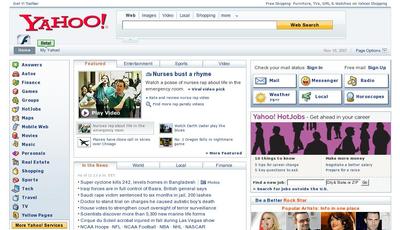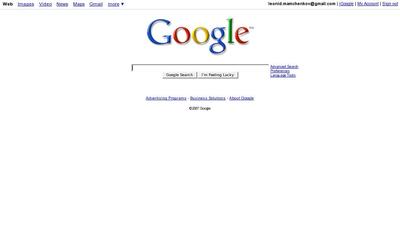The big news of last week were of yet another attempt by Microsoft to buy Yahoo. If you missed all the buzz, Web Worker Daily has a really nice round-up with separate links to facts (read: press releases) and opinions (read: speculations). If that’s not enough for you, you can always find more with Google, Slashdot, and Digg.
Many online news sources continue to be completely dominated by discussion of Microsoft’s hostile bid to acquire Yahoo! And no wonder: a deal of this magnitude has the potential to touch the lives of pretty much everyone living and working online. It’s a rare web worker indeed who doesn’t use something from one or another of those two companies in their daily lives.
So, first, can it affect me personally? Yes. I don’t use any Microsoft/MSN/Live services, but I can’t live without Flickr and del.icio.us, both of which belong to Yahoo now. Also, I do occasionally use Upcoming.
Now, what do I think about this whole thing? Well, I think it shows how desperate Microsoft is. The general trend is towards the web, not the desktop, where they still rule. Most of their own web services turned out to be pretty lousy. They want to get online, and they are willing to pay a lot of money to get their fast. Mostly, of course, this is a war for a place under the advertising sun.
From the Microsoft view point (I think), Yahoo looks to be online. More than so. Yahoo is the second most important company online after Google. And Google is giving Yahoo some rough time. And Microsoft realizes it clearly, that Google is partially to blame for this whole trend towards the web. And it also realizes that if it is serious about moving online, it’ll have to compete with Google in one area or another. So it makes even more sense to acquire Yahoo. From the Microsoft point of view (again, I think), Yahoo appears to know what they are doing.
And that’s where I see their biggest mistake. Yahoo is indeed the second most important company on the web after Google. But it struggles to be there, and it struggles even more to keep Google in sight. Because it is falling pretty far behind.
A little side note: I think there is a war of concepts between Google and Yahoo. It’s bigger than just advertising space or anything else.
- Yahoo started off with a directory of links, which was better than many at a time because it was moderated by humans. Google started off with bringing huge improvements to machine based indexing and searching. Yahoo:Google – 0:1.
- Google brought this whole concept of clean user interfaces and simplicity for the end user. Yahoo stayed and expanded on the old idea of portals, which bring all possible and impossible to the front page of the site. Yahoo:Google – 0:2.
- Google made a stake on the brilliance of its people – if the service is properly done, it’ll grow by itself and bring in more users. Yahoo played it safe, trying to purchase web services that already have momentum. Yahoo:Google – 1:2.
End of side note.
Overall, I think that this is a bad move on Microsoft part. If the acquisition will happen, I think, it’ll damage both companies, and, maybe even, drive at least one of them into the ground (eventually, not immediately). Yahoo, being at the position it is now, needs more flexibility. The online space is getting more and more competitive. That’s where you need to move fast. Yahoo made some really good acquisitions before, and I’d say that they have some sense in this area, but they need more speed with integration of their acquisitions into their backbone. With Microsoft on board, I’m afraid, everything will get a lot slower.
Also, I think that Yahoo won’t win much from this acquisition. Surely, some money will come their way, but it’s not always a good thing. And I don’t think that it’s good in this particular case and at this particular time.  I believe it would do much more good for Yahoo to get smaller, faster, and “hungrier”. Hunger (think: limited resources) makes one’s mind sharper. That’s exactly what they need now. Not more “fat”.
As for Microsoft, I think there strategy should be more directed towards entertainment. If they really want to buy something, they should buy some entertainment companies. Those that produce content. Disney studios maybe? Or some sort of a deal with AOL/Time Warner (they had a few frictions in the past, but they seem to managed to work out a solution together). With more and easily accessible content they can reinforce end users interest in their Windows desktop, as well as their gaming platform (Xbox thing), and their mobile platform (Windows Mobile). And, entertainment content by itself is a rather popular thing among the end users, which makes advertising much easier. And rich advertising too – not just text-based relevant web ads, but audio and video media.
What do you think about all this?

